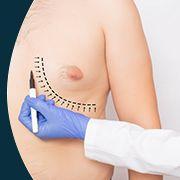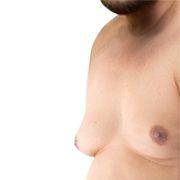Common Skin Disorders
In This Article
Common Skin Disorders
Elena
Updated on September 25, 2024
Medically verified by Dr. Arya
Fact checked by Dr. Fazeela

Cosmetic
5 min read
Our skin is the body's largest organ and is often exposed to various environmental factors that can lead to numerous skin disorders.
Understanding these conditions can help you manage them effectively and maintain healthy skin.
Mykare Health is here to walk you through some common skin disorders, their symptoms, causes, and treatment options.
Acne
Acne is a common skin condition that occurs when hair follicles become clogged with oil and dead skin cells. It often causes whiteheads, blackheads, or pimples and usually appears on the face, forehead, chest, upper back, and shoulders.
Symptoms
-
Whiteheads (closed clogged pores)
-
Blackheads (open clogged pores)
-
Pimples (small red, tender bumps with pus at their tips)
-
Large, solid, painful lumps beneath the surface of the skin
Causes
-
Hormonal changes
-
Excess oil production
-
Bacteria
-
Hair follicles clogged by oil and dead skin cells
Treatment
-
Over-the-counter topical treatments containing benzoyl peroxide or salicylic acid
-
Prescription medications like topical or oral antibiotics, retinoids, or birth control pills for women
-
Professional treatments such as chemical peels, light therapy, or drainage and extraction
Eczema (Atopic Dermatitis)
Eczema, or atopic dermatitis, is a condition that makes your skin red and itchy. It is common in children but can occur at any age. Eczema is long-lasting (chronic) and tends to flare periodically.
Symptoms
-
Dry skin
-
Itching, which may be severe, especially at night
-
Red to brownish-gray patches
-
Small, raised bumps, which may leak fluid and crust over when scratched
-
Thickened, cracked, scaly skin
Causes
-
A combination of immune system activation, genetics, environmental triggers, and stress
-
Dry skin, which can lead to decreased protection against bacteria and irritants
-
Irritants such as soaps, detergents, and disinfectants
Treatment
-
Moisturizers to keep skin hydrated
-
Topical corticosteroids to reduce inflammation
-
Antihistamines to control itching
-
Avoiding triggers such as harsh soaps, certain foods, and stress
-
Light therapy for severe cases
Psoriasis
Psoriasis is a skin disease that causes red, itchy scaly patches, most commonly on the knees, elbows, trunk, and scalp. It is a chronic disease with no cure, but the symptoms can be managed
Symptoms
-
Red patches of skin covered with thick, silvery scales
-
Dry, cracked skin that may bleed
-
Itching, burning, or soreness
-
Thickened, pitted, or ridged nails
-
Swollen and stiff joints
Causes
-
Immune system problem that causes skin cells to regenerate too quickly
-
Genetic predisposition
-
Triggers such as infections, injuries to the skin, stress, smoking, and heavy alcohol consumption
Treatment
-
Topical treatments like corticosteroids, vitamin D analogues, and retinoids
-
Light therapy (phototherapy)
-
Oral or injected medications that reduce the immune system's activity
 9 min read
9 min readThe Advantages of Choosing Mykare Health for Gynecomastia Surgery
 6 min read
6 min readIdentifying The Ideal Age For Gynecomastia Surgery
 6 min read
6 min readPre and Post Gynecomastia Surgery: Essential Things to Know
Get a Callback Now
Rosacea
Rosacea is a chronic skin condition that causes redness and visible blood vessels in your face. It may also produce small, red, pus-filled bumps.
Symptoms
-
Facial redness
-
Swollen red bumps
-
Eye problems, such as dryness, irritation, and swollen, reddened eyelids
-
Enlarged nose due to thickening of the skin
Causes
-
Exact cause is unknown, but it may involve a combination of hereditary and environmental factors
-
Triggers include hot drinks, spicy foods, alcohol, extreme temperatures, sunlight, stress, and certain medications
Treatment
-
Topical treatments like metronidazole or azelaic acid
-
Oral antibiotics for moderate to severe cases
-
Laser therapy to reduce redness and visible blood vessels
-
Good skincare routine and sun protection
Fungal Infections
Fungal infections can affect different parts of the body, including the skin, nails, and hair. Common types include athlete's foot, ringworm, and yeast infections.
Symptoms
-
Red, scaly, or peeling skin
-
Itching and burning sensations
-
Blisters or sores
-
Cracked skin
-
Thick, discolored, or crumbling nails (in case of nail fungus)
Causes
-
Fungi thrive in warm, moist environments
-
Close contact with an infected person or animal
-
Walking barefoot in damp communal areas, like locker rooms and swimming pools
Treatment
-
Over-the-counter antifungal creams, ointments, or sprays
-
Prescription antifungal medications for severe or persistent infections
-
Keeping affected areas clean and dry
-
Avoiding sharing personal items such as towels or shoes
Tips for Healthy Skin
- Stay Hydrated: Drink plenty of water to keep your skin hydrated and flush out toxins.
Protect from the Sun: Use sunscreen with at least SPF 30, wear protective clothing, and seek shade during peak sun hours.
-
Maintain a Healthy Diet: Eat a balanced diet rich in vitamins and minerals, especially those beneficial for skin health, like vitamins A, C, and E.
-
Establish a Skincare Routine: Cleanse, moisturize, and exfoliate your skin regularly to remove impurities and dead skin cells.
-
Avoid Harsh Products: Choose gentle, hypoallergenic skincare products to avoid irritation and allergic reactions.
-
Get Enough Sleep: Quality sleep is crucial for skin repair and regeneration. Aim for 7-9 hours of sleep per night.
-
Manage Stress: Stress can trigger or worsen skin conditions. Practice relaxation techniques such as yoga, meditation, or deep breathing exercises.
-
Quit Smoking: Smoking accelerates skin aging and can worsen skin conditions. Quitting smoking can improve your skin's appearance and overall health.
-
Exercise Regularly: Physical activity improves blood circulation, which helps nourish skin cells and keep them healthy.
-
Keep Your Environment Clean: Regularly clean your living spaces to reduce exposure to dust, allergens, and pollutants that can affect your skin.
Skin disorders can be uncomfortable and sometimes distressing, but understanding their causes, symptoms, and treatments can help manage them effectively.
If you experience persistent or severe skin issues, it's important to consult a dermatologist for proper diagnosis and treatment.
By taking good care of your skin and being aware of potential triggers, you can maintain healthy and radiant skin.
Acne is caused by clogged hair follicles and often results in whiteheads, blackheads, or pimples.
Eczema, also known as atopic dermatitis, causes red, itchy skin and can be triggered by irritants or stress.
Psoriasis leads to red, scaly patches on the skin due to an overactive immune system.
Rosacea is a chronic condition causing facial redness and visible blood vessels, often triggered by environmental factors.
Source Links
AAD.org
Mayoclinic
Healthline
Cleveland Clinic



